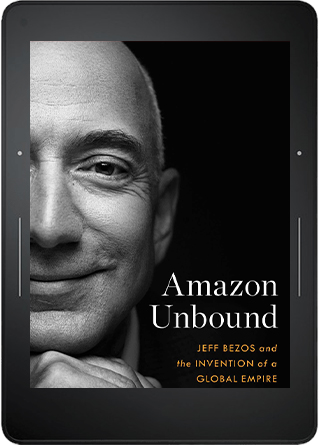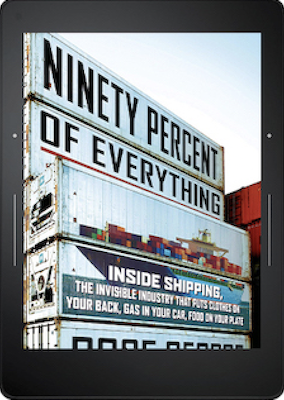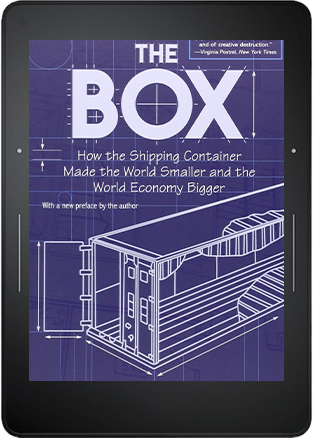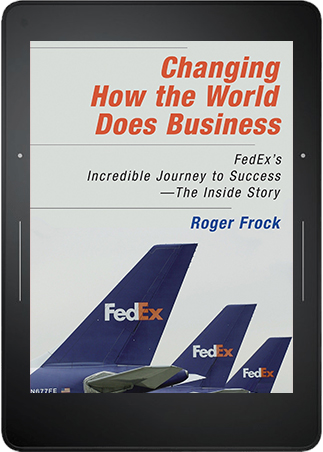5 Books Every Supply Chain Manager Should Read
Technology has made it easy for us to find resources to stay informed and educated. However, sifting through the enormous amount of resources available to us can be overwhelming. While the internet is a good place to read and learn, let’s not discount the power of books and the important role they play in shaping thought, stimulating the imagination, and explaining concepts.
In today’s digital age, the ability to patiently go through a book and assimilate it completely is a superpower. Information requires contemplation to turn into wisdom.
— Dhruvil Sanghvi (@dhruvilsanghvi) October 20, 2021
Supply chain managers and digital transformation officers have an important part in the smooth operations of any business. They keep track of logistics, update inventory, analyze operational performance, and collaborate with vendors and suppliers. They need to be on top of their game to meet quality and safety standards.
Here are five books that we highly recommend to every supply chain manager:
Amazon Unbound, Brad Stone

The story of Amazon’s billionaire founder Jeff Bezos has fascinated everyone in the E-commerce, supply chain management, and logistics management space. Amazon in 2021 is everywhere. A company that started by selling books online from a garage is now selling every product one can think of. Author Brad Stone explains the rise of the E-commerce giant in America in this book.
The book simplifies the process of earnings of Amazon daily, the day-to-day decision-making process, and the effects of such decisions on the consumers. Brad Stone looks at the failure of some products like the Amazon Fire Phone and the rise of Amazon Web Services and fulfillment centers.
It is a wholesome book for any logistics manager because it explains in detail the technology used to keep Amazon customers happy.
Ninety Percent of Everything, Rose George

This book written by Rose George unlocks the hidden industry of shipping and logistics. There is a famous line in the book: “There are black dots in the sea, each dot is a ship, each ship is laden with boxes and each box has goods”. The unrecognized industry is explained beautifully.
Without shipping, there would be chaos in the market where supply could have been 100 times higher than the demand for certain products.
The book looks at the intricacies of the shipping industry, how the process is carried out with such accuracy, and how it leaves no room for human error. We all are aware of the growth of the internet and technology over the past 10 years. This book explains the changes that took place in the shipping industry and their impact on supply chain management. Furthermore, it explains the concept of ‘flags of convenience’ and the attack of pirates on cargo ships.
The Box: How the Shipping Container Made the World Smaller and the World Economy Bigger, Marc Levinson

Another hit by Marc Levinson, this book narrates dramatically the creation of containers, the establishment of containerization, and the effect it has had on the country’s economy. Although filled with many technical concepts, he has beautifully explained the adoption of containerization and how much cash/credit is actually required then we think.
The Box was published on the fifth anniversary of the first container voyage. We learn about the story of Malcolm McLean, the man behind turning containerization from an impractical idea into a huge profit-making industry. There are various anecdotes in the book comparing ancient containerization and more modern techniques of containerization. A must-read for anyone in the import-export or supply-chain and logistics world.
Changing How the World Does Business: Fedex’s Incredible Journey to Success – The Inside Story, Roger Frock

Taking logistics management to greater heights, author Roger Frock explains the rise of FedEx and how it has changed the way of conducting business. Once a start-up, FedEx has today become a billion-dollar company. Before FedEx, it was nearly impossible to have an overnight shipment or what we call an expedition, but FedEx changed the entire logistics and supply chain game.
Roger Frock explains how founder Fred Smith and his men faced criticism in the beginning, the challenges concerning the unavailability of logistics software, improper delivery management, the transportation management system, etc. It is an exhaustive book and Frock has tried to include every person who was involved in the success of FedEx in its initial days.
FedEx now operates in more than 120 countries and is well-known for overnight shipment and last-mile delivery. Billion-dollar companies depend on FedEx for their operations. This is truly an inspirational tale for many professionals and enterprises.
Ten Lessons for a Post-Pandemic World, Fareed Zakaria

Another superb book by Fareed Zakaria. He takes a deep dive into lessons for the post-pandemic world. In the first chapter, he explains how the human race is evolving every decade and how each challenge we face shapes the human race. Later in the book, he explains how technology and markets are not enough to take the world forward, and the need for quality government. He emphasizes that there will be more diseases after the pandemic and how supply chain resilience will come into play. This book emphasizes that the entire world is a connected place and how a domino effect is inevitable. Finally, he says, globalization is not dead but has more room to expand.
Conclusion
With technology evolving, we need to evolve ourselves, and these books will definitely give supply chain managers an edge. If you’re in the field of Logistics Automation and modern Transportation Automation Platforms, LogiNext is a leading player and having a grasp over the platform can help one excel in their career and in the process helps brands achieve operational efficiency and reduce delivery costs.
113








@LogiNext